Outdoor play is vital in a child's development and offers many opportunities which could not be granted indoors. Olivia Coombe explores five activities, and the skills children will develop through these.
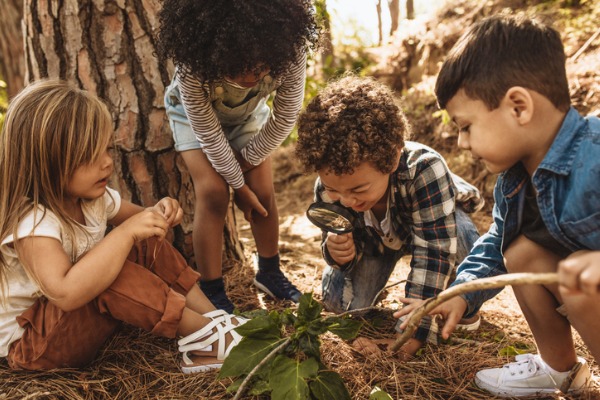
Playing outdoors presents an excellent opportunity for children to utilize natural materials found within their environment. These materials can serve as a starting point for discussions that can further enhance children's learning and knowledge of the world around them.
Outdoor learning goes beyond simply allowing children to run around while staff observe. While child-led play is important, with proper planning, children can develop a wide range of skills with the help of nature.
Here are five activity ideas that children can participate in the outdoor learning environment of your setting.

This activity is not only fun but also educational. Children can collect various natural materials, such as leaves, flowers, and twigs, and mix them in a pot to create their own unique 'soup'.
To start the activity, provide the children with a pot, spoon, and water. Then, let them explore the garden to gather different items they think would make a ‘tasty soup.’ Children can collaborate and decide what ingredients they want to include, as well as how much of each item they should add.
During this activity, they will discover and learn about various textures, colours, and scents of the items they are using. Collecting materials from the garden will encourage children to interact with their surroundings and gain knowledge about different plants and insects that inhabit it.
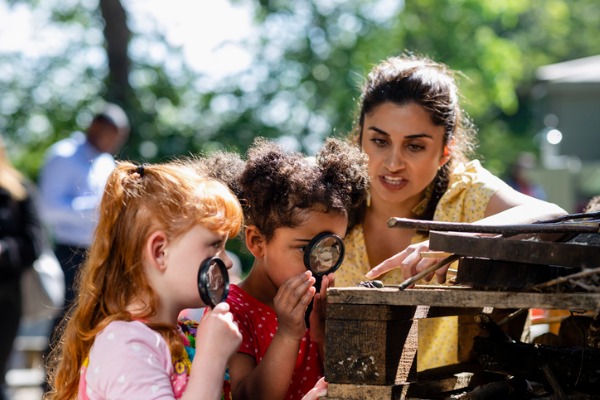
Creating a bug hotel is a fun and educational activity that encourages children to explore their environment and observe the behaviour of different insects.
To create a bug hotel, children can collect natural materials such as leaves twigs, bark, and stones. They can then use these materials to build a structure, such as a wooden box or a pile of stones, that provides shelter for insects. Children can decorate the bug hotel with flowers, leaves, and other natural materials, and can add food sources such as fruit or sugar water to attract insects.
The bug hotel is a fun and educational way to engage children in outdoor learning and help them develop a love and appreciation for the natural world.
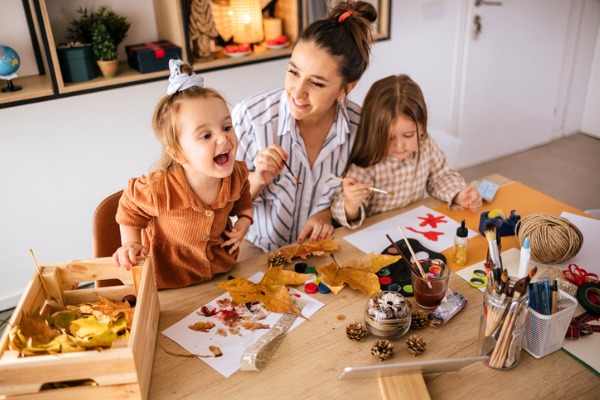
To begin the activity, children can collect leaves from the ground or nearby trees. They can look for leaves of assorted colours, shapes, and sizes, and collect as many as they need to create their family tree. Children can then use these leaves to create a family tree on a large piece of paper.
They can glue the leaves onto the paper in the shape of a tree, and then use markers or paint to draw their family members' names and faces onto the leaves.
The leaf art family tree is a fun and engaging outdoor activity that can help children to develop a love of nature and creativity and strengthen family bonds.
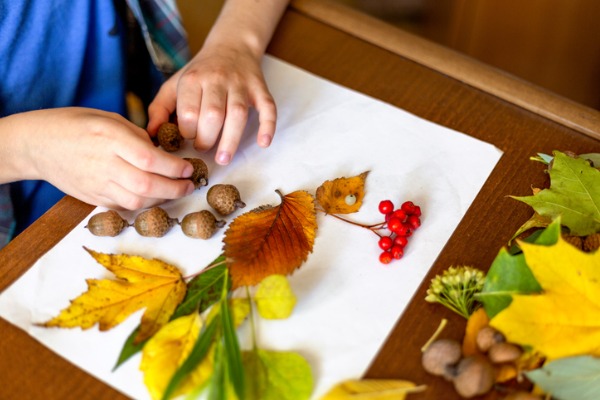
The activity involves collecting natural materials such as leaves, sticks, rocks, and flowers, and using them to create a nature-inspired display board. The activity is a great way to encourage children to explore the natural environment and develop their creativity and artistic skills.
Look for materials of different shapes, colours, and textures, and collect as many as they need to. Children can then use these materials to create a display board, arranging the materials in a visually appealing way. They can use glue or string to attach the materials to the board and use markers or paint to add labels.
This encourages observation skills as children look for several types of natural materials to include in their display and pay attention to the details of the materials they choose.
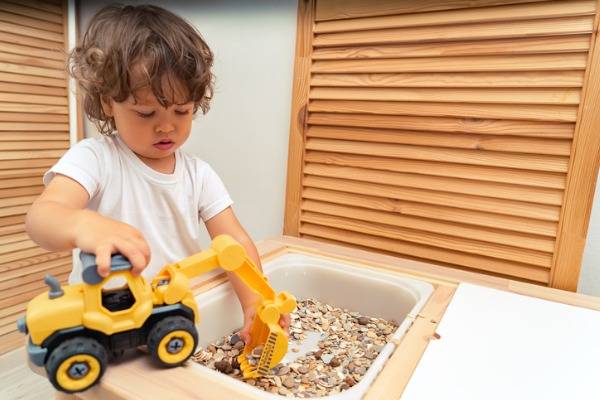
Measure with mother nature! Children will create a dig site using measuring tools. Bring a tuff tray outside along with, measuring jugs, cups, spoons, scales, and toy cars/trucks.
Staff will explain measurements and weights to the children, highlighting numbers on the vessels and scales. Join the play and ask questions like 'Could I have 100 grams of dirt?' After children become familiar with the tools, staff can arrange a group discussion.
Children can weigh the rocks, order them from heaviest to lightest, and further develop their understanding of weight.
Help pupils grow in confidence and skills through learning outside.